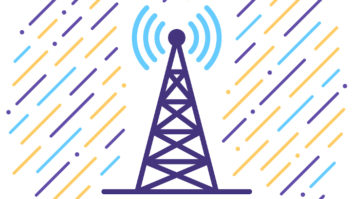Chairman Ajit Pai has said that the skyrocketing number of FM translators has resulted in an increase of interference issues and obliges the FCC to respond. Now we’re seeing more details.
The commission will consider a Notice of Proposed Rulemaking (MB Docket 18-119) at its May meeting that proposes to streamline rules relating to interference caused by translators and expedite the complaint resolution process. It explicitly is basing its proposal in part on ideas from the National Association of Broadcasters and Aztec Capital Partners Inc.
The use of FM translators, which rebroadcast AM or FM primary stations on different frequencies, has quickly expanded in the United States, as Radio World readers are well aware. Translators are authorized on a secondary basis and have no protection against subsequently authorized full-service FM facilities. FM translators typically are forced to leave the air until interference complaints with full-time stations can be resolved. The FCC acknowledges that how it handles interference complaints hasn’t kept up.
“The growth in the number of translator stations has led to an increasing number of interference disputes between translator stations and full-service stations. However, resolving these fact-intensive disputes can currently be quite time-consuming,” according to the FCC in its NPRM.
The FCC noted that the existing resolution process consists of its staff “mediating interference disputes based upon as little as one listener complaint of interference.” It said that process is often sidetracked by disputes over validity of claims, objectivity of complaining listeners or procrastination by one of the parties. It also noted allegations that “distant” full-service stations increasingly abuse the complaint procedure to shut down “local” fill-in translators.
[Related: “Are Broadcasters Gaming the Translator Rules?”]
The proposal would allow FM translators in such situations the flexibility to change channels to any available FM channel using a minor modification application. The NAB has said this would be particularly valuable in less populous markets, where the “FM band is more likely to have open frequencies, and where translators may be the only local broadcast radio services.”
The proposal also would change a system that requires the FCC staff to mediate based upon as little as a single listener complaint. It proposes to require a minimum number; NAB has suggested that six is the appropriate number, others have suggested more and the FCC wants comments on that.
Meanwhile the commission tentatively rejected an NAB proposal to require a showing of interference at a sufficient number of locations within an affected area to demonstrate “a real and consistent interference problem.” It said this idea could undervalue multiple complaints from one approximate location, such as an apartment building.
But the commission would also modify how it assesses actual and predicted interference from translator stations; and it discusses a possible “contour limit” containing most of the listeners for an affected station beyond which complaints would not be actionable.
Read the details here.
Chairman Pai on his blog earlier this week reiterated the need to mitigate interference caused by the expanded use of translators. “The goal is to simplify and expedite the interference complaint process, which would benefit both full-power FM radio stations and FM translators,” Pai wrote.
Overall, the number of licensed FM translators has grown from approximately 1,850 in 1990 to approximately 7,575 in 2017, according to the FCC database. In addition, there are more than 700 new translator construction permits authorized and 1,100 applications for new translator CPs pending before the commission.







